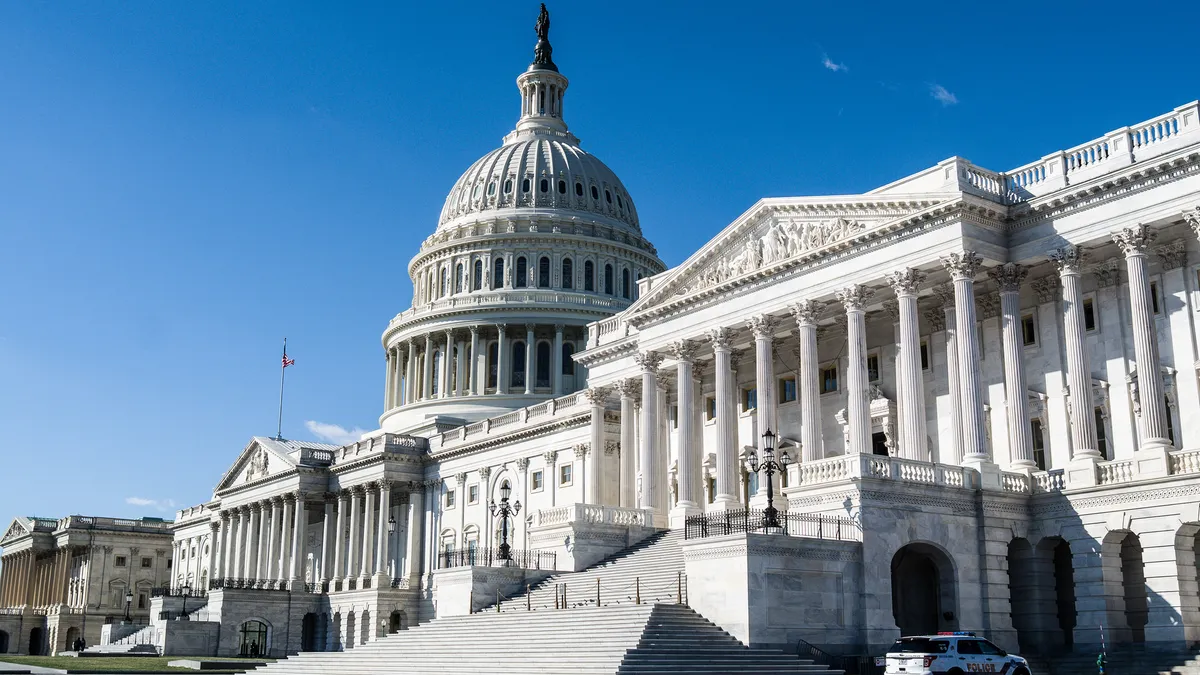Dive Brief:
-
More than 100 Democratic U.S. House representatives are imploring Miguel Cardona, the newly minted U.S. Secretary of Education, to prioritize replacing the Trump-era rule on Title IX, which governs how colleges and K-12 schools should investigate and potentially punish campus sexual violence.
-
The lawmakers, led by Rep. Jackie Speier, D-Calif., urged Cardona in a letter to work with the U.S. Department of Justice to render the rule unenforceable.
-
President Joe Biden said he would reverse the regulation, but it's unclear what legal route the administration will take to do so.
Dive Insight:
Former Education Secretary Betsy DeVos introduced the rule with much fanfare, claiming it would correct what due process advocates viewed as an unbalanced approach to adjudicating sexual assault cases. They had argued those systems, which were based on guidance from the Obama administration, were unfairly slanted against accused students.
In K-12, the rule requires schools to respond to sexual harassment allegations when any school employee has been notified by a student. An earlier proposal from DeVos had limited those employees to teachers. K-12 institutions could also be held liable under the rule if they failed to respond to notices by bus drivers, coaches, cafeteria staff and others.
DeVos' rule also limits the cases colleges would need to investigate, including a vast majority of off-campus sexual assaults, and it narrows the definition of sexual harassment to conduct that is so "severe, pervasive and objectively offensive" that it would interfere with a student's education. That's the definition used by the U.S. Supreme Court in cases involving Title IX.
The regulation also creates a judiciary-like system for reviewing cases, in which representatives from both parties can cross-examine the other side.
It took effect last August and was widely panned by sexual assault survivor activists as well as college administrators. In their letter, the lawmakers echoed some of those groups' criticisms, writing that the Trump administration's rule "turns back the clock and erodes hard-fought protections and rights for victims with a ‘boys will be boys' approach to sexual assault on college campuses." They noted that the bulk of the more than 124,000 public comments on the rule were negative, and that multiple lawsuits have challenged it.
An effort by 18 attorneys general last summer also sought a preliminary injunction to postpone the rule's implementation on the grounds it was impractical to develop and adopt new policies and procedures in just three months, especially at a time when schools' resources were strained by COVID-19. They also argued the rule failed to protect students from isolated sexual harassment incidents, and that it left a gray area for schools on protecting the privacy of those involved in complaints and the ability to use "sound forms of discipline" before a formal appeals process. The U.S. District Court for the District of Columbia ruled against that request.
The legislators want Cardona to work with the Justice Department to voluntarily stay the rule. Doing so would effectively be stating that the Education Department would not enforce some of its provisions, Jake Sapp, Austin College's deputy Title IX coordinator and compliance officer who tracks legal matters concerning the sex discrimination law, wrote in an email.
This tactic isn't the most effective way to change the Title IX rule, according to Sapp. Without pursuing a formal rulemaking process, as DeVos did with her regulation, a future administration could "wipe away" any guidance from Biden's Education Department, he wrote.
The Obama administration was criticized for using guidance, which doesn't carry the force of law, to administer Title IX policy.
"Essentially, if the Biden admin went back to ruling by guidance …. they would be perpetuating exactly that which the Obama admin was criticized for in this area and what ultimately led to the new regs," Sapp wrote.
An Education Department spokesperson said the agency received the letter and will respond directly to the lawmakers.
This story has been updated with a comment from the U.S. Department of Education.
Roger Riddell contributed to this story.













